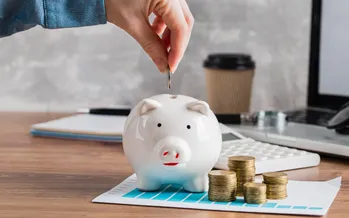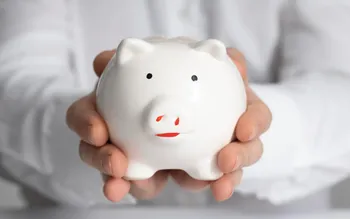Keeping a handle on your monthly expenses can be an overwhelming task, especially if you're just starting out. However, it's a crucial step towards achieving financial stability and reaching your long-term goals. Here are seven simple steps to help you track your monthly expenses:
List All Your Sources of Income
Before diving into your expenses, it’s important to understand where your money is coming from. Make a list of all the sources of income you have each month. This could include your salary, bonuses, freelance income or any other sources that put money into your bank account.
Categorize Your Expenses
Next, categorize your expenses into groups such as housing, utilities, transportation, food, entertainment, debt payments, and savings. This will help you better understand where your money is going each month and identify any areas where you might be overspending or under-budgeting.
Calculate Your Fixed Expenses
Fixed expenses are bills that remain consistent from month to month, such as rent/mortgage payments, car payments, insurance premiums, or subscription services. Make a list of all your fixed expenses and add them up to determine how much you're spending each month on these essential items.
Track Your Variable Expenses
Variable expenses are costs that can change from month to month, such as groceries, dining out, gasoline, or entertainment expenses. Keep a record of these expenses in a journal, spreadsheet, or budgeting app for an accurate picture of your overall spending habits.
Establish a Budget
Based on your income, fixed expenses, and variable expenses, create a monthly budget that you can realistically stick to. Make sure to allot enough money for essentials like housing, utilities, transportation, and groceries while still allowing some room for discretionary spending.
Monitor Your Spending
Stay on top of your expenses by regularly checking in with your budget and making adjustments as needed. You might find that certain categories are consistently higher than others or that you're spending more than you thought on certain items, such as eating out or online shopping. By tracking your spending closely, you can make informed decisions about where to cut back and redirect funds to more important priorities.
Review and Adjust Your Budget Regularly
As your income or expenses change over time, it's essential to review and adjust your budget accordingly. This will help ensure that you're always spending within your means and working towards your financial goals. Set a regular schedule for reviewing and updating your budget, such as monthly or quarterly.
By following these steps, you can gain greater insight into your finances, reduce unnecessary expenses, and achieve your long-term financial goals. Remember to be flexible, stay disciplined, and always strive to make the most of your resources.
FAQ Section
Q: Why is it important to create a personal budget?
A: Creating a personal budget helps you understand your income and expenses, track your spending habits, set financial goals, and make informed decisions about saving and investing. It also provides a clear picture of your financial health and allows you to adjust your spending according to your priorities.
Q: How often should I review my budget?
A: It's recommended to review your budget at least once a month. This will help you stay on track with your financial goals and make necessary adjustments as needed due to changes in income or expenses.
Q: What if I struggle to stick to my budget?
A: Sticking to a budget takes time and practice. It's essential to be patient and disciplined when implementing budgeting habits. You can also try using budgeting apps or tools to automate certain aspects of your budget, making it easier to follow and maintain.
Q: Can I still enjoy life while sticking to a strict budget?
A: Absolutely! Budgeting doesn't mean giving up on all the things you love. The goal is to allocate funds towards activities and items that bring value and happiness without overspending. You can also find creative ways to save money, such as exploring free or low-cost activities in your area.
Q: Are there any other tips for effective budgeting?
A: Yes, some helpful tips include setting realistic goals, breaking down big expenses into smaller, manageable payments, using cash instead of credit cards, and automating savings directly from your paycheck. Additionally, reviewing and adjusting your budget regularly can help ensure its effectiveness over time.
Q: What if I don't have all my expenses written down? How can I track them without knowing where the money is going?
A: If you don't have a complete list of your monthly expenses, it may seem overwhelming to start tracking them. However, there are still a few ways to get started:
- Review bank statements and receipts from the past few months to identify recurring charges.
- Use online tools like Mint or YNAB (You Need A Budget) to automatically categorize expenses based on your bank transactions.
- Try using the envelope budgeting method, where you allocate cash for each category and place it in an envelope labeled with that expense type. This can help you visualize where your money is going and prevent overspending.
- Be proactive about tracking new expenses as they arise. Use a small notebook or smartphone app to jot down any one-time or irregular costs, such as doctor's appointments, unexpected car repairs, or birthday gifts for loved ones.
Remember, the goal is to get an accurate understanding of your spending habits so you can create a realistic budget and make informed financial decisions moving forward. By starting small and being consistent, you can build up momentum and develop a system that works for you.











